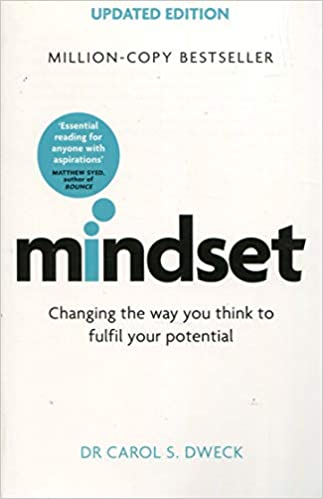I once walked out of a presentation about growth mindset.
And before you laugh at the irony – that I didn’t have enough of a growth mindset to cope with the presenter’s challenging ideas – let me explain what my problem was.
It wasn’t that I didn’t want to grapple with the subject matter, or hear different takes on it.
The thing was, I’d already read several books about fixed and growth mindsets, and I’d spent a decade exploring these concepts through my work in schools. I knew very well that there were complex ideas here and I was happy to hear different perspectives.
But this presenter was saying things that were wrong – maybe even dangerously so.
Mindset Mistakes
First, she talked about learning as a process of correction and repetition – until, finally, you got it “right.” To her, a growth mindset was what kept you smiling through all the negative feedback until you got there.
To me, that felt depressing, limiting, and much more in line with a fixed mindset about how learning works.
Second, she promoted praise above almost anything else. Praise for everything, all the time. That was how people kept learning, she said. But I knew that wasn’t what the research said. And it certainly wasn’t my experience in schools – where endless praise quickly wore thin.
And third, she believed that people can do anything if they put their minds to it. She made out that it was pretty much a guarantee.
It was when she said that for the umpteenth time that I finally walked out.
Pedantry, Praise and Promises
How had she got it so wrong? You don’t need a teaching degree to know that boring tasks and picky feedback don’t produce great learning.
And on the second point, just as all that “improving” soon gets tired, so does relentless praise. As a teacher, I’d quickly learned that if you praise everything, kids just keep doing the same thing – expecting the same reward.
But what irked me most was her glib promise that anyone with a growth mindset can do anything. I’d started hearing that a lot in schools too, and on plenty of TV talent shows. You know how it goes: if you want to win, get Academy Awards or Number Ones… just don’t stop believin’.
What Growth Mindset Is – and Isn’t

The talk that night was supposedly based on Carol Dweck’s bestseller “Mindset,” one of those books on the subject that I’d already read – and which, I was sure, didn’t say any of those things.
In Dweck’s definition of a growth mindset, anything that made learning boring – like inching toward a “perfect” outcome – just didn’t fit. Nor did “perfect,” in fact. That was actually a product of fixed mindset thinking, and the enemy of open, adventurous learning.
Sure, she advised her readers to praise efforts rather than results. But she was very clear that results still matter. Your efforts have to take you somewhere.
And nowhere did she promise success. Nowhere did she say that a growth mindset was a passport to whatever endpoint you chose.
And how could it be? I’m never going to be a star ballet dancer, however hard I try. Not everyone can win an Oscar or top the charts. There’d be a great deal of disappointment if everyone took “growth mindset” to be some kind of life goal guarantee!
Mindset Myths
It turns out that the presenter I abandoned wasn’t the only one who’d got growth mindset wrong. In the updated edition of her 2006 classic, the author tackles all the misconceptions I identified that night, and more.
In a new section called “False Growth Mindsets,” she laments how praising effort over results has gone too far. You can even do more harm than good if you praise someone for everything they do. Be positive with them, yes. But reserve your praise for effort that produces learning, and truly embodies a growth mindset.
Dweck rubber-stamps what that means. It’s the ability to choose appropriate challenges. To use feedback effectively, to learn from mistakes, to keep getting better – but never to be satisfied that the learning’s done.
And – putting a smile on my face – she warns about the dangers of using growth mindsets to promise glory. She invented the concept, and that wasn’t what she meant at all.
Lifelong Learning
I’d always felt a bit guilty about leaving the lecture that night, in case I’d overreacted. But reading the latest edition of “Mindset” reassures me that I was right to take a stand.
If teachers, parents and managers get growth mindset as wrong as my speaker did, they run the risk of putting people off learning for life – and leaving them disillusioned and disappointed.
In fact, maybe I should send her a copy of Carol Dweck’s updated book and see what she makes of it.
This would be good growth mindset thinking: championing learning, relishing a challenge, but being realistic about my chances.
I just hope that the speaker has enough of a growth mindset to see an opportunity to think again!
Downloading our “Mindset” Book Insight
We review the best new business books and the tested classics in our monthly Book Insights, available as text or as 15-minute audio downloads.
So, if you’re a Mind Tools Premium Club member or corporate user, download or stream the “Mindset” Book Insight review now.
If you haven’t already signed up, join the Mind Tools Club and gain access to our 2,400+ resources, including 390+ Book Insights. For corporate licensing, ask for a demo with one of our team.
What’s your opinion about “growth” and “fixed” mindsets? Join the discussion below and let us know!



